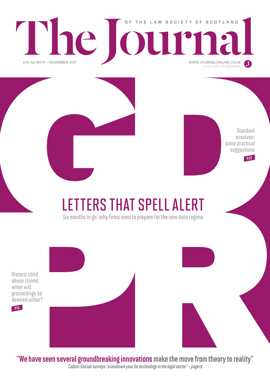Pension transfers – history repeating itself?

The advent of personal pensions in 1988 prompted the selling by 1994 of more than 5 million personal pensions. By 1992 it had become clear that many of those pensions had been mis-sold. A mis-selling review to identify those cases involved and to provide compensation was announced in 1993, and a redress cost in excess of £10 billion is estimated to have been applied to administration and compensation under that review. A significant proportion of that redress cost related to pension transfer business.
Pensions freedoms
The pensions freedoms introduced in April 2015 radically changed the context for retirement and savings decisions. Pension savings can now be accessed as income or cash, but defined benefit pension savings must be transferred to a defined contribution type arrangement to allow access to the full range of flexibilities. The number of members transferring from defined benefit schemes to personal pensions is reported by the Financial Conduct Authority (FCA) to have grown significantly over the past year. Consistent with that, the Pensions Regulator estimates that circa 80,000 transfers were made from defined benefit pension schemes in the year to 31 March 2017.
Advice shortcomings
In that context and against that backdrop the FCA recently completed a two year investigation into certain transfer business being undertaken. It reported that of 88 recommended transfers from defined benefit pension arrangements checked:
- 47% were suitable;
- 17% were unsuitable; and
- in 36% it was unclear that the recommendation was suitable; and in considering the suitability of the recommended product and fund it found that:
- 35% were suitable;
- 24% were unsuitable; and
- in 40% it was unclear that the product was suitable.
The FCA, whilst highlighting that firms must make sure that their personal recommendations are suitable for their clients, confirmed concerns that firms had designed processes and procedures which resulted in transfer rather than ensuring suitability of advice. Key shortcomings identified included:
- failing to obtain enough information about the client’s needs and personal circumstances;
- failing to consider the needs of the client alongside the client’s objectives when making a recommendation;
- inadequate assessment of the risk the client was willing and able to take in relation to their pension benefits; and
- inadequate comparisons having been made between the defined benefit pension scheme and the intended receiving scheme.
Alarmingly, those shortcomings closely align with advisory failures identified almost 25 years ago in terms of the personal pensions mis-selling review.
The FCA is to clarify its expectations and update its guidance going forward in light of the changes in the transfer market. That is to be welcomed, and it is to be hoped that will lead to a greater consistency of approach and of good advice and recommendations being afforded to members/investors in relation to what for many is their most valuable asset.
Pension scams
This activity by the FCA in relation to transfer advice goes hand in hand with its initiatives (complemented by those taken by the Pensions Regulator) to counter pension scams.
The upcoming ban on cold calling is to be welcomed, but it will not stop pension scams given the size of potential reward. To give an idea of scale, HMRC confirmed that just under 200,000 people accessed their retirement savings flexibly using pension freedoms in the third quarter of 2017, with approximately £1.6 billion being paid out.
The Pensions Regulator highlights that it is essential that customer awareness is raised in relation to all scams, but pensions in particular where customer knowledge is so low. In its blog its key messages include:
- Spot the signs – unsolicited phone calls, texts or emails from people claiming they are from Pension Wise or other Government backed bodies are nearly always scams. Beware of exotic sounding investments that offer guaranteed returns or ask you to invest all your money in one place.
- Caution – if you are thinking of cashing in your pension, investigate the details fully.
- Ask the experts and make sure that appropriate advice is taken from a qualified and registered adviser, checking that through the FCA’s website and checking there the list of known scams.
- Stay vigilant and seek advice – scammers will be developing new ways to trick you.
The overall message is that scammers have adapted and are adapting to the new pensions environment. Scams are increasingly sophisticated and those involved are often articulate and financially knowledgeable, with credible websites, testimonials and material that are hard to distinguish from the real thing.
Those considering a pension transfer or accessing their benefit flexibly require to be mindful of these issues, and our profession should do what it can to raise awareness and protect members and clients from becoming victims.
In this issue
- Immigration detention: a case of overuse
- Sexual harassment: don't suffer in silence
- Child disputes: a quicker way through?
- Brexit: where are we now and what happens next?
- Reading for pleasure
- Opinion: Claire McKee
- Book reviews
- Profile
- President's column
- ScotLIS: the citizens' tool
- People on the move
- People matter
- Historic abuse: the fairness matrix
- Landmark year in legal IT
- Sentence, but no full stop
- Opening up arbitration
- Making the agent pay
- Equal pay: beware the mass claims
- Dealing with conflict
- Claims outside the rules
- Pension transfers – history repeating itself?
- Last instructions
- Scottish Solicitors' Discipline Tribunal
- Standard missives: an unachievable dream?
- SOLAR powered
- Disability rights
- Law reform roundup
- Too hard a drive?
- Settlement: can you avoid cheques?
- Q & A corner
- When 25 is the new 35
- Sorry; not sorry
- Ask Ash
- Plan sets ambitious 2017-18 targets
- Letting agents: prepare to register
- Paralegal pointers
- A way to make an impact






